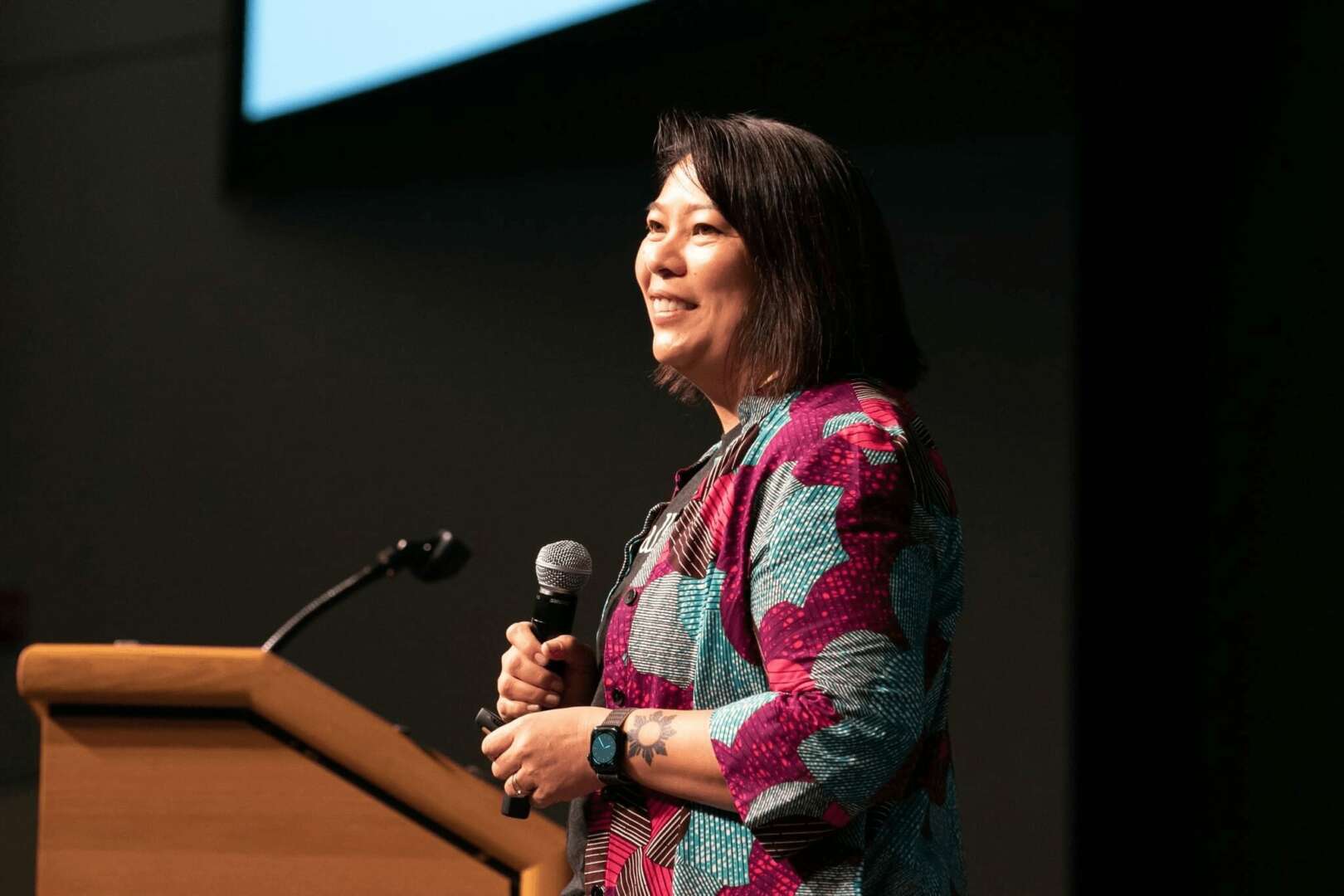We recently connected with Liza Talusan and have shared our conversation below.
Liza, thanks for joining us, excited to have you contributing your stories and insights. Day to day the world can seem like a tough place, but there’s also so much kindness in the world and we think talking about that kindness helps spread it and make the world a nicer, kinder place. Can you share a story of a time when someone did something really kind for you?
In addition to being an entrepreneur who owns a company focused on leadership and strategic change management, I am also an author. I wrote a book called “The Identity-Conscious Educator: Building habits and skills for more inclusive schools.” I had always wanted to write this book, and began the writing process just before the pandemic of 2020 hit. Like many others, I was in “lock down” for weeks and unsure about what was going on in the world. Being isolated and at home was one of the best motivators to really focus on writing.
My book was published in March 2022, and I wasn’t sure how the public would receive it. I know for me this was a lifeline – something that helped keep me busy and occupied during the pandemic. But, would others feel connected to it? Would others find it useful? Would others like the stories I tell in the book?
Within a few months, people – mostly educators – were purchasing the book and using it for their Summer Book Series. Soon, I was receiving photos of people reading my book on the beach. Others sent me photos of their book all marked up with notes in the margins. Another person sent me a picture of my book in her bag and said, “Just wanted you to know that I have taken you all around the world with me. Thanks for keeping me company.”
I thought it was so kind that people had bought and read the book. But, more so, it was such beautiful gifts of kindness for individuals to send me photos and words about how much the book was meaning to them.
From that point on, I have made sure that whenever I am moved by someone else’s work, I have sent them a photo and a note!
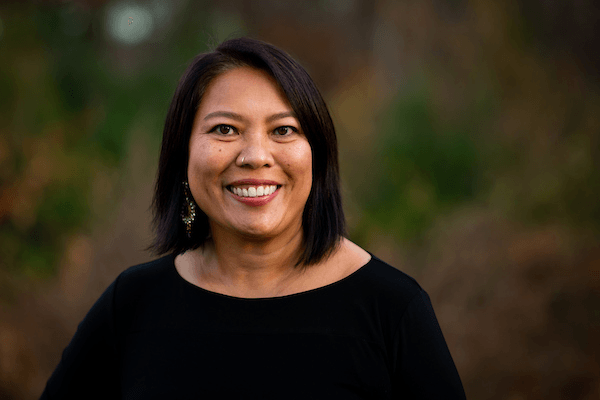
Liza, love having you share your insights with us. Before we ask you more questions, maybe you can take a moment to introduce yourself to our readers who might have missed our earlier conversations?
I identify as a teacher, scholar, mother, runner, facilitator, strategic partner, and someone who enjoys my work! I have always been interested in what it means to “belong” in a place – what does it feel like to belong? What structures need to be put in place so people can belong? What are the behaviors we can demonstrate that help others belong?
I believe that we are happier when we experience belonging – that feeling where we know we contribute in meaningful ways, where people respect us for who we are, and where we enjoy what we are doing. Many organizations who are seeking to solve problems with high turnover, employee morale, and effective recruitment realize that shaping communities where people belong can address these issues. That’s where I come in! I serve as a strategic partner to organizations who are interested in improving the climate and culture in their communities through the lens of belonging.
But, just being nice to others does not solve these problems. With my background in leadership and organizational development, I work with organizations on their employee handbooks, programming, and support groups to create real structures for change. I do this by providing 1:1 executive leadership coaching, a deep dive into the organizational patterns, and engaging workshops for professional development.
I mentioned I enjoy work, right? Everything I do is also focused on feeling good about what is happening. As a result of working with me, people feel empowered, confident, and prepared to address challenges. What sets me apart from other strategic partners is that I have extensive background in teaching and learning. I root my workshops in the foundations of adult learning processes and make sure to fit the needs of different learning styles. This is sometimes forgotten when others do this work, but for me, focusing on how people learn is essential to belonging and change.
What are the most common ways of engaging with me: leadership team meetings, professional development workshops, 1:1 coaching, strategic planning sessions, and support related to diversity and inclusion.
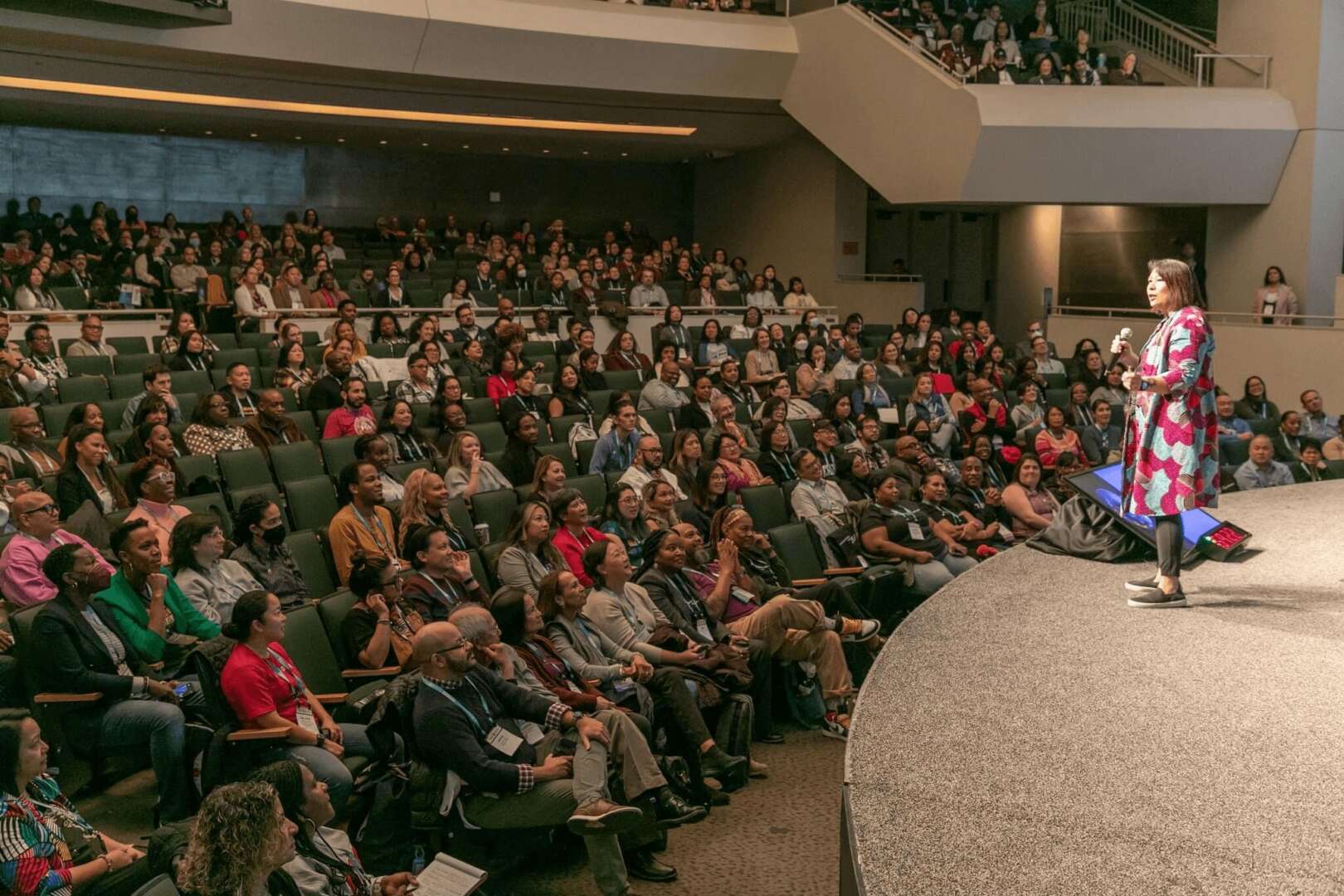
What do you think helped you build your reputation within your market?
I’m often reminded of the saying, “People don’t remember what you taught them, they remember how you made them feel.” That’s stayed with me throughout my whole career. I want people to feel like I care about them and that I’ll remember them long after our conversation.
When I work with a client or group, I want them to feel like the most important person in the room. I ask them questions about themselves. I listen closely to the stories they tell me. And, years later, when we cross paths again, I remember the stories they told me.
People have told me stories that they mention my name in a room and the response is usually, “Oh! I know Liza! I really like her!” (Even if I don’t know who they are!). I think people feel genuinely connected to me and a part of my life. For me, this happens mostly through social media and storytelling. My social media (along with my published material) often includes stories of both the highs-and-lows of doing difficult work. I post when I succeed, and I post when I’ve failed. While some prefer to keep their lives private, I believe this has been my best and most authentic strategy. I want people to know that I’m real – not just someone who comes on stage to deliver a keynote or who sits in a boardroom. I want them to know I’m more than what they are just seeing in that moment.
And, in turn, I believe that my genuine interest in others helps them feel important and connected to me, too. I’m really proud of my reputation as being someone who others feel connected to.
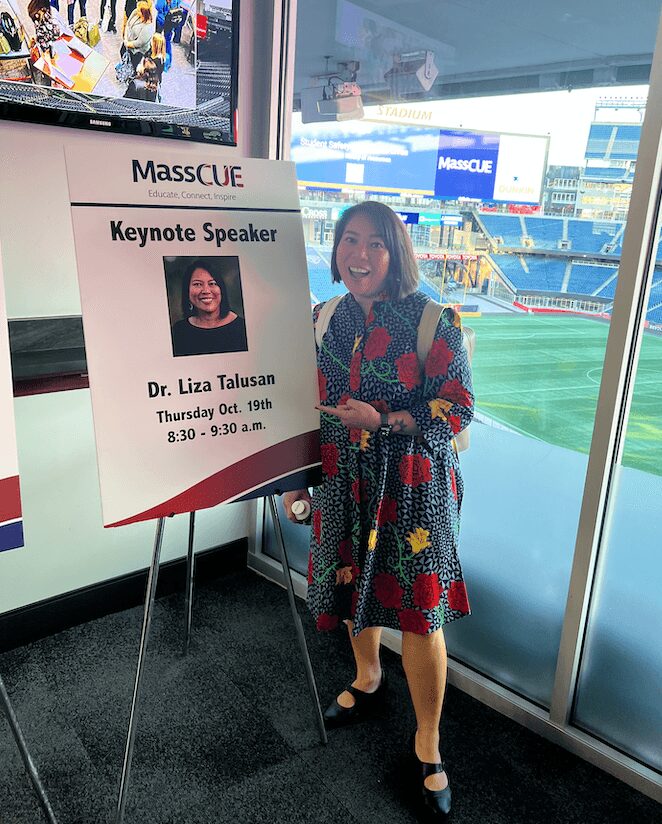
What’s a lesson you had to unlearn and what’s the backstory?
One motto people often hear me say is “I am not in competition with you. There is room enough for us both.”
For many years, however, I lived under the belief that I always had to be the best, the fastest, and the smartest in the room. I felt like I had to compete with others for business, for recognition, and for awards. I often believed that the more famous I was, the better my work was. Because of these lessons, I approached life in a very bitter, destructive, and toxic way.
It was difficult to untangle myself from those lessons because we live in a culture where someone has to be #1. And, often the only way to be #1 is to make sure that you did everything to get to, and stay, on top. We live in a culture where competition is king and there can only be one winner. I definitely bought into this. In some ways, maybe I’m even successful because of it. But, I definitely was not a happy person. I was constantly worried about what others were doing to get ahead. I was constantly worried that I was not working hard enough or hard enough. As you can imagine, I soon burnt out. My physical, emotional, and mental health was declining, and I just didn’t want to live like that anymore.
I decided that I was not going to compete with others anymore. I decided to believe that there was plenty of work out there for people in my field. I decided that the only one I wanted to compete with was myself. Once I stopped focusing on how I could be better than others, I found happiness. I found that I could cheer on the success of others. I found that I could be genuinely happy for someone when they won an award or received recognition. I found that I could create community with others rather than distance myself.
An interesting outcome of detangling from competition is that the work offers actually increased for me. I think people responded to my commitment to finding a good match vs trying to get the client to work with me. I think people responded to my genuine support of others in my field. I think people responded to my commitment to put the experiences of people at the center of the work. While other companies might choose to work with a strategic partner who is cutthroat and competitive, I do believe there are plenty who want a more humane approach to business. For those who prefer that approach, I think they are attracted to how I approach not only my work but also my life. They see that alignment and want something similar for their own places.
Contact Info:
- Website: https://www.lizatalusan.com
- Instagram: @Ltalusan
- Facebook: https://www.facebook.com/LizaTalusanCC
- Linkedin: https://www.linkedin.com/in/lizatalusan/
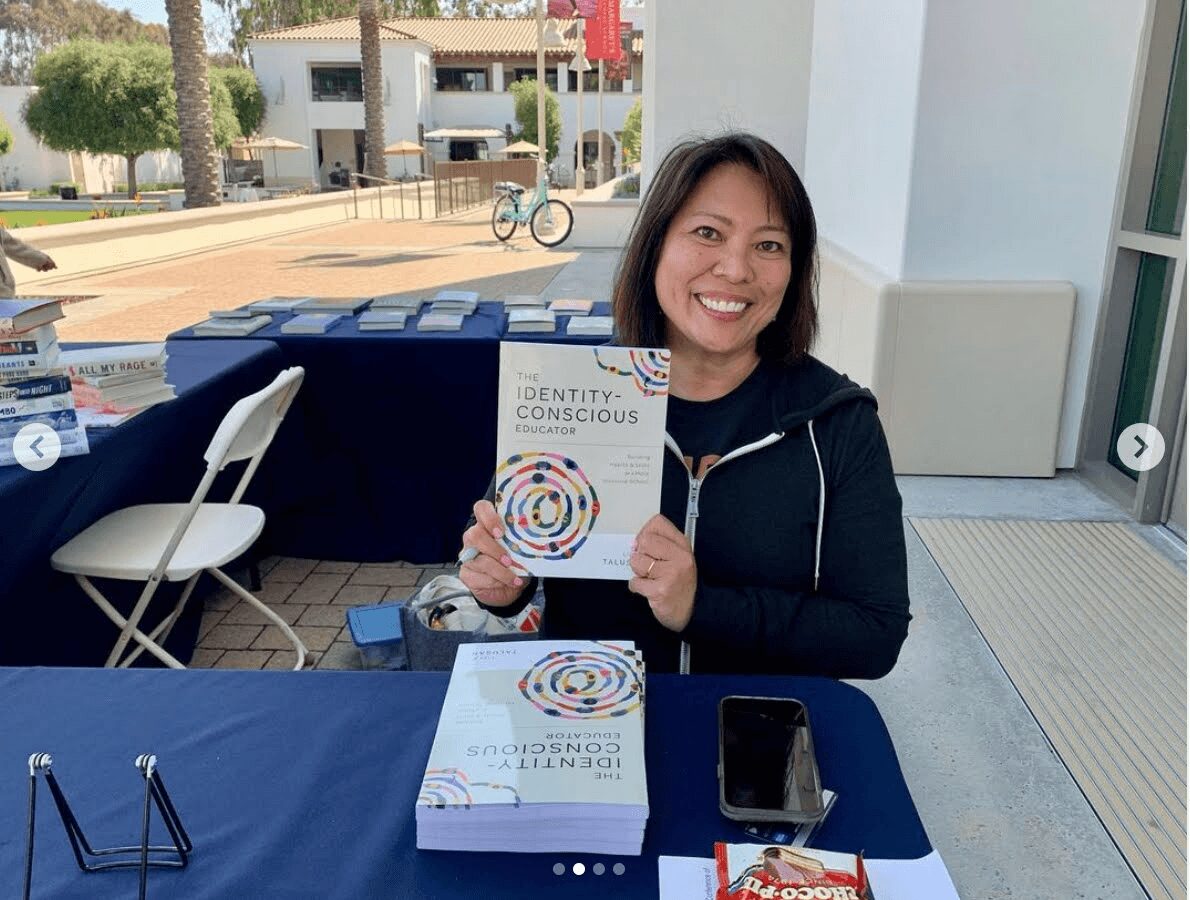
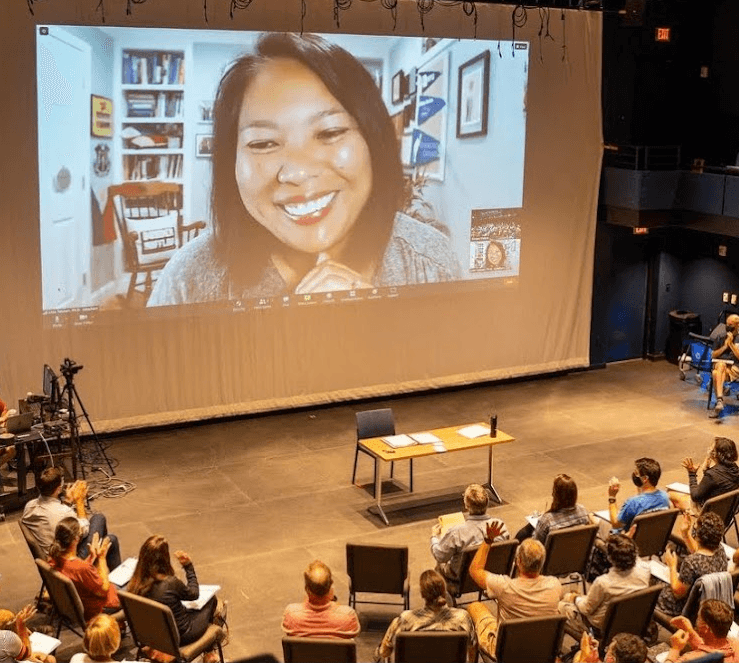
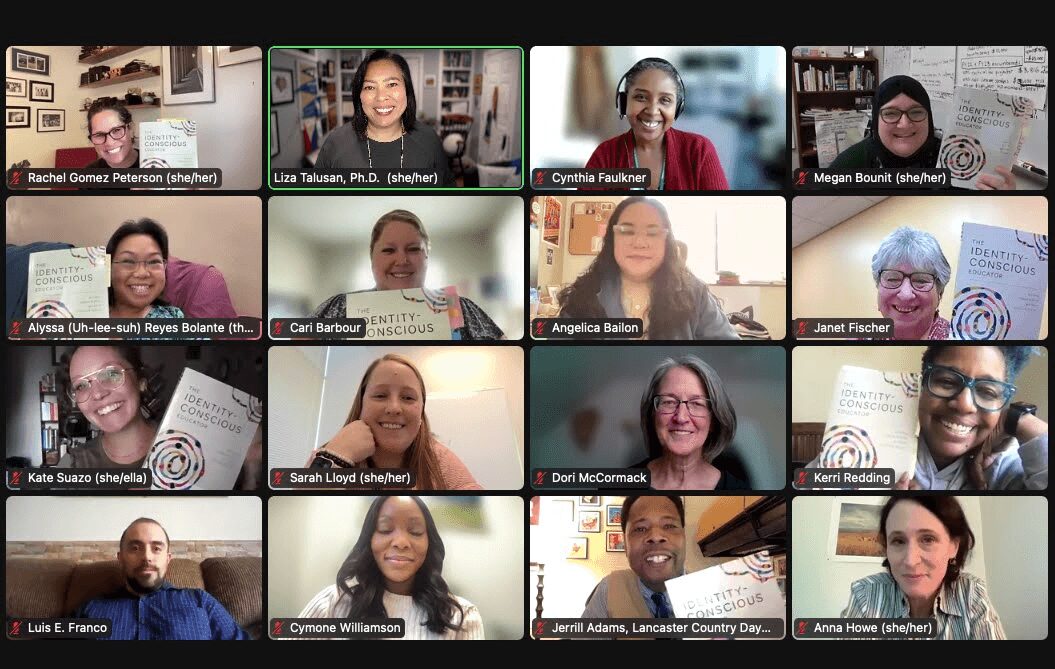
Image Credits
Alonso Nichols
Middlesex School


